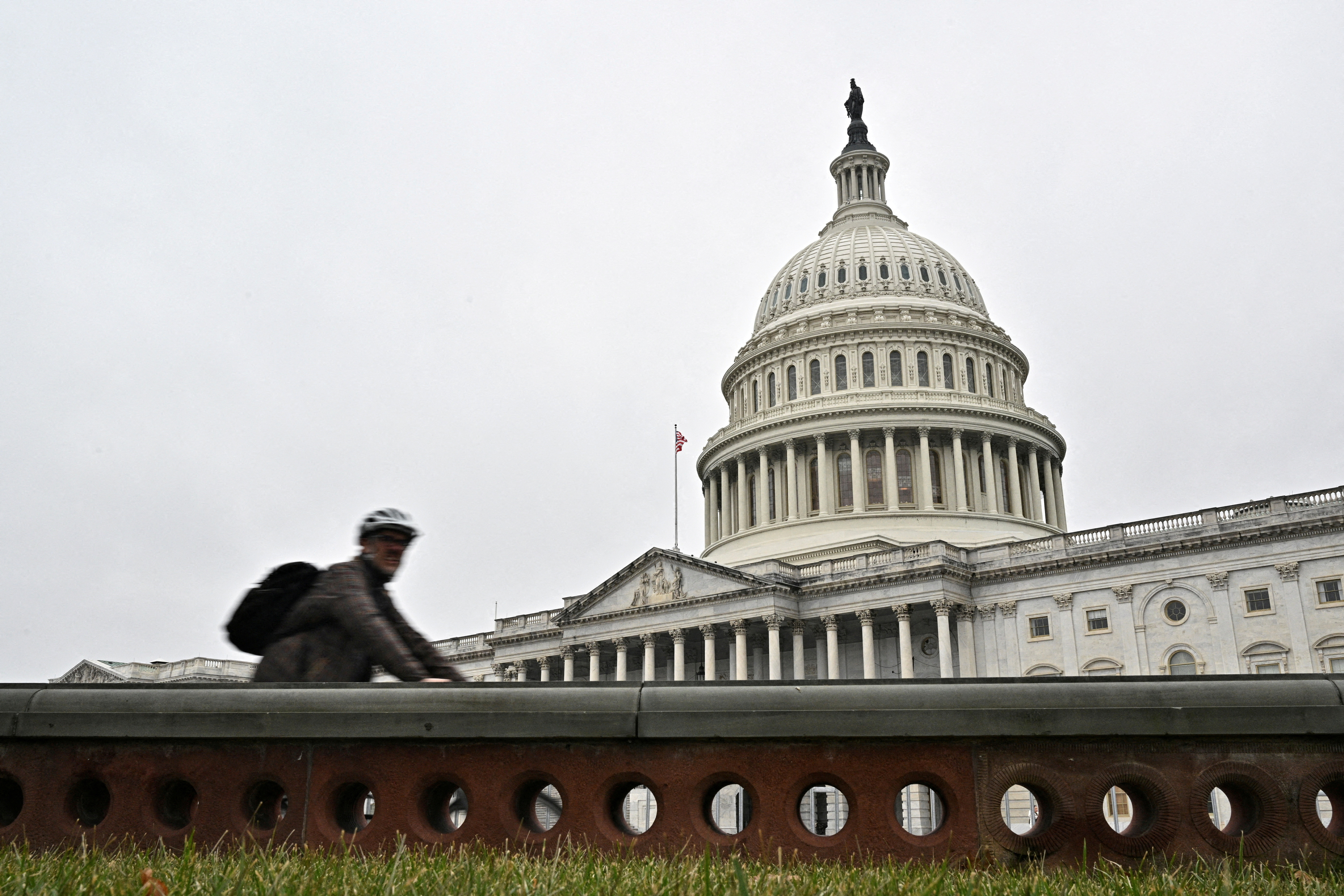
[1/2] A bicyclist passes the U.S. Capitol building on the morning of the first day of the 118th U.S. Congress on January 3, 2023 in Washington, D.C., U.S. REUTERS/Jon Cherry/File Photo
WASHINGTON, May 9 (Reuters) – President Joe Biden and top Republican lawmakers will face off on Tuesday to state their position on raising the $31.4 trillion U.S. debt ceiling.
Ahead of the 4 p.m. ET (2000 GMT) Oval Office session, there were no signs the two sides would immediately agree to any concessions to avoid default before June 1.
They warn that a prolonged default would send the U.S. economy into a deeper recession, while unemployment would rise, destabilizing a global financial system built on U.S. bonds. Investors are looking forward to the impact.
The Democratic president is calling on lawmakers to unconditionally raise the federal government’s self-imposed debt ceiling. House Republican Speaker Kevin McCarthy said his chamber will not approve any deal that does not cut spending to address the growing budget deficit, signaling on Tuesday that he is not open to short-term fixes.
Past debt ceiling fights have typically ended with a deal hastily arranged in the final hours of negotiations, thus avoiding a default. In 2011, the struggle prompted a downgrade of the country’s top-tier credit rating. Heroines in that battle They warn The current situation is dangerous as political divisions have widened.
Tuesday’s crowd could be the start of an increasingly crowded season.
McCarthy, whose party has only a narrow majority, wants to vote on the debt ceiling along with sweeping spending cuts that the White House considers drastic.
On Tuesday, McCarthy appeared to close the door on a short-term solution, saying he would oppose a deal that would raise the debt ceiling until September, allowing more time for an agreement on spending with Democrats.
“No,” McCarthy said when asked by reporters if Biden would agree to align the debt ceiling with the budget process if he proposed such an idea.
“He needs to stop ignoring the problems,” McCarthy added. “Why keep kicking the can down the road? Let’s settle that now.”
“A short-term extension is not our plan either,” the White House responded. Spokeswoman Karine Jean-Pierre called the standoff a “man-made crisis led by the Speaker.”
He added: “The president is going to be very clear with the leaders today that they need to act.”
The U.S. Chamber of Commerce, America’s largest trade association, on Tuesday urged a “swift” bipartisan deal on the debt ceiling, including an agreement on energy program permit reform and discretionary spending limits.
Few countries in the world have debt ceiling laws, and Washington’s occasional raising of the debt ceiling allows Congress to pay for spending already authorized.
The White House said Biden would agree to a separate debate on the budget but would not be bound by the debt ceiling.
His meeting with McCarthy was their first since February 1. They will be joined by Senate Majority Leader Chuck Schumer, a Democrat, as well as top Senate Republican Mitch McConnell and top House Democrat Hakeem Jeffries.
The start of active talks has eased investor nerves, forcing the central government to pay the highest interest rate ever on a one-month debt issue last week.
White House staff and aides to congressional leaders met quietly on Friday to begin talking about the debt ceiling. Louisa Terrell, chief of the White House Office of Legislative Affairs, representatives from the Office of Management and Budget and the National Economic Council attended.
Biden’s foreign travel plans and House and Senate recesses leave just seven days before June 1 when all three parties are scheduled to be in town.
On Tuesday, Biden added a May 22 stop in Papua New Guinea to his itinerary that includes Japan and Australia, but he is not expected to extend the trip to Asia.
Treasury Secretary Janet Yellen said on Monday that failure to raise the debt ceiling would have a major impact on the US economy and weaken the dollar as the world’s reserve currency.
White House officials have debated whether Biden has the authority to raise the debt ceiling by invoking the 14th Amendment to the U.S. Constitution, but Biden told MSNBC last week that “I’m not there yet.”
The 14th Amendment states that the validity of the United States’ public debt “shall not be questioned.” Invoking it could trigger a legal challenge.
Steve Holland reports; Editing by Heather Timmons and Lincoln Feist
Our Standards: Thomson Reuters Trust Principles.